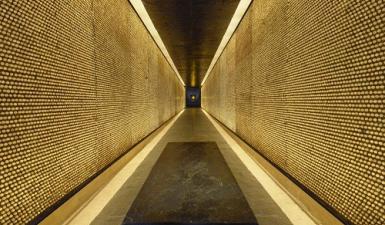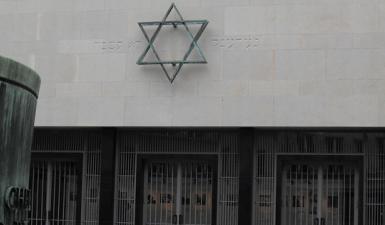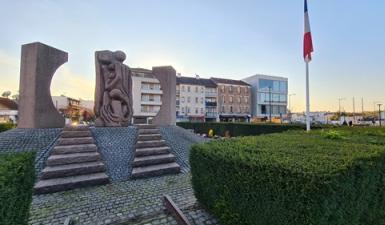Young reporters of remembrance
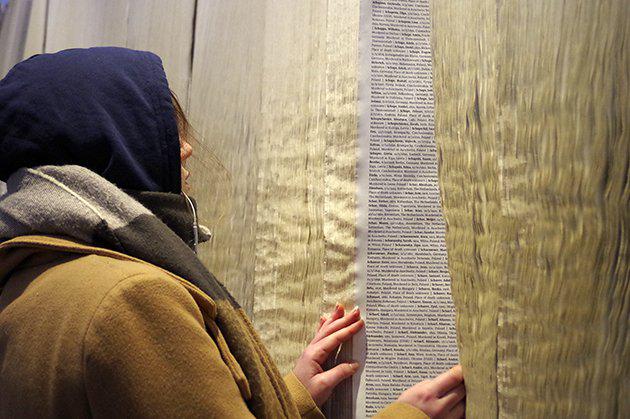
Contents
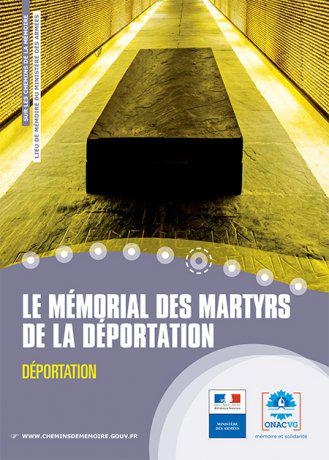
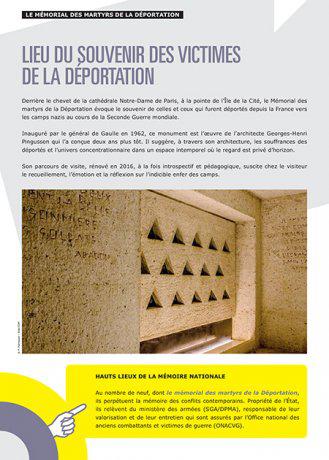
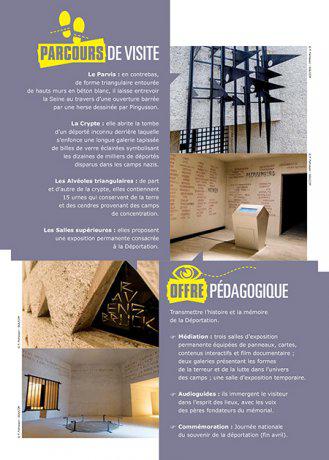
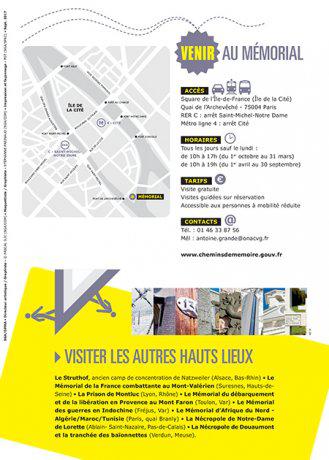
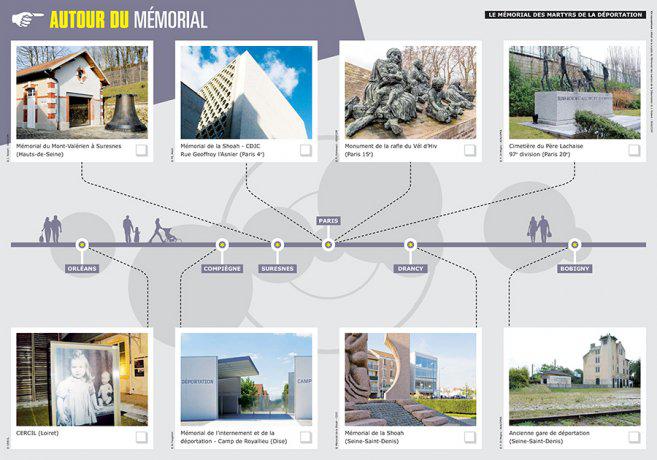
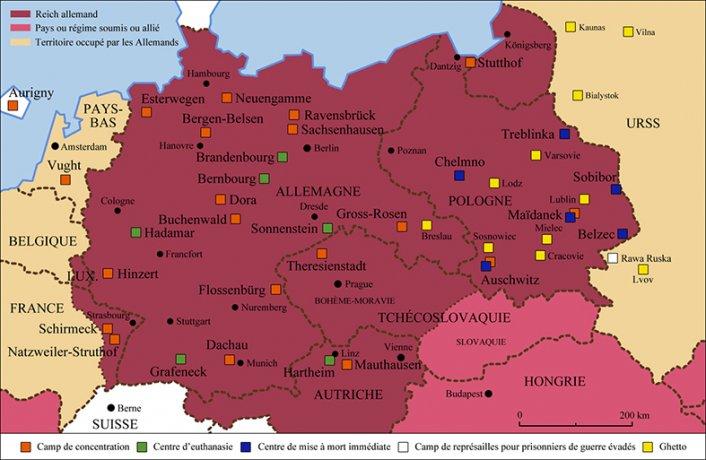
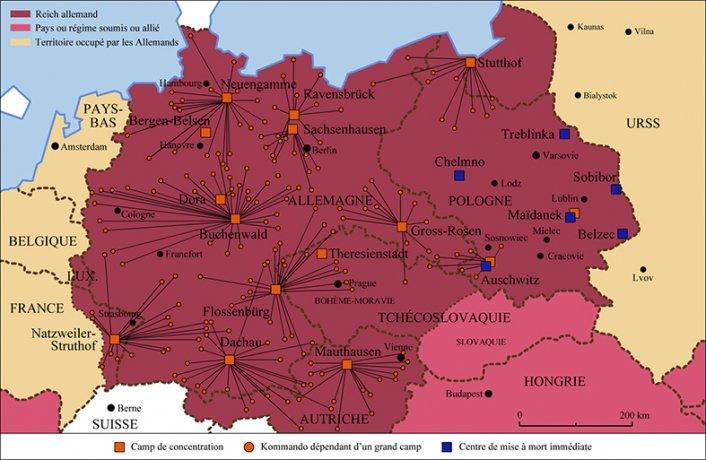
Summary
DATE: July 1942
PLACE: France
OUTCOME: Fifteen-year-old Henri Borlant is arrested and deported to Auschwitz-Birkenau
Henri Borlant was the only Jewish child under 16 who was arrested in 1942 to escape from Auschwitz. Deported in July, he survived three years in the death camp. On his return, he became a doctor. When Les Chemins de la Mémoire invited him to meet with students of the Metz Lycée de la Communication, he replied: “It is my duty.”
I will tell you my story. I was born in Paris on 5 June 1927. I was the fourth of nine children. My parents were Russian Jews who came to France before the First World War, in 1912, inspired by the idea of democracy. At the end of the 1939 school year, there were rumours of war. In Paris’s 13th arrondissement, the authorities feared there would be bombing. As in other neighbourhoods with lots of children, evacuations were organised. So my mother, my brothers and sisters and I were put on a train which took us to a little village south of Angers. That night, my mother gave birth to the youngest of my sisters. The next day, 1 September, posters announced general mobilisation. I was enrolled at the local school and received a Catholic education from the priest and schoolmaster there. Before long, I was baptised, took my first communion, was confirmed and became a firm believer. I left school at 14 and got a job at the local garage. We were happy because we were together, and we were discovering all the pleasures of the countryside, which contrasted with the many restrictions of life in Paris.
The idyll was broken on 15 July 1942, when German soldiers came for us. They had our names and our address. My father was not on the list. I was 15 and I was on the list, as were my brother Bernard and my sister Denise. I thought that Germany needed a workforce and that I was going to work. But my mother was on the list as well. I was not prepared for that. She was in no state to work. I didn’t get it. We climbed into the lorry and drove off. Other families were picked up along the way. When we got to the Angers seminary, I was separated from my mother and my sister. The next day, my father joined me, and my mother was sent back to the village. We stayed at the seminary for five days.
Then, one morning, we were loaded into cattle trucks, with no windows or seats and no room to lie down. I would never again see my sister, who was separated from us. The train sat there for hours before it left. People began writing notes, which they pushed through the little opening in the roof. I did the same: “Mum, it seems we are leaving for Ukraine to do the harvest there.” I learnt later that the message had been delivered to my mother by a railway worker.
The journey took three days and three nights, with nothing to eat or drink. Finally, the train came to a halt in the middle of a field. You could hear men shouting, dogs barking. We got out and were told to leave our bags behind and to hurry. We were put in rows of five and made to walk the mile or so to the Birkenau camp, where we soon learned that the barbed-wire fence surrounding it was electrified. We were led to a large hut, where we were ordered to get completely undressed. In front of everyone? Yes. I was very shy. They began hitting us with batons. Others came to shave our heads and faces. I saw my father, naked and with a shaved head. Next, we were tattooed with a number. That number was our name, our identity. I became 51 055. The French people in the camp, mostly resistance fighters or communists, had a red triangle next to their number. A letter indicated your nationality. The cruellest had green triangles to show they were ex-criminals. They were often leaders of Kommandos, or labour units.
We were given clothes that had been worn by people who were sick or had probably died wearing them. Our shoes were like wooden clogs. They were very hard to run in. Soon, we all had lacerated feet. We were beaten and shouted at, and given nothing to eat or drink. Trains arrived every day with more deportees. We were told: “This is an extermination camp. You will only get out of here by the crematorium chimney.” We were terrified. There was nothing we could do.
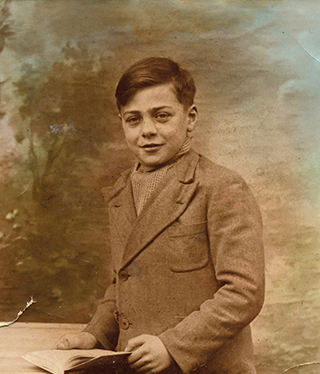
Henri Borlant as a boy
© © Collection Henri Borlant
WHAT WAS THE ONE THING THAT MOST MARKED YOU DURING YOUR DEPORTATION?
I think it was hunger. When you’re starving, you’re no longer entirely human. You’re driven crazy, you lose weight, you overexert yourself. I know the sort of hunger experienced by those skeletal figures you see in archive photographs, reduced to skin and bone, who died as a result. Hunger: you may use the same word when you skip lunch, but it doesn’t mean the same thing. We experienced something that cannot be put into words. When you’re hungry like I was, you have no more dreams, nothing. Hunger makes you obsessed.
WERE YOU ABLE TO STAY WITH YOUR FAMILY?
After the first week in the same hut as my father, we were separated. I sometimes saw him in the evening. After a month, he told me: “I’m 54 years old. I won’t hold out very long. You must keep going, because your mother will need you.” After six weeks, I did not see him anymore. Two months later, I was sent to Auschwitz I and separated from my brother; I did not see him again. I stayed for a year in Block 7, which was run by a furious madman with a green triangle. After a year, I was sent back to Birkenau. It had become a vast camp. I looked for my brother, but did not find him.
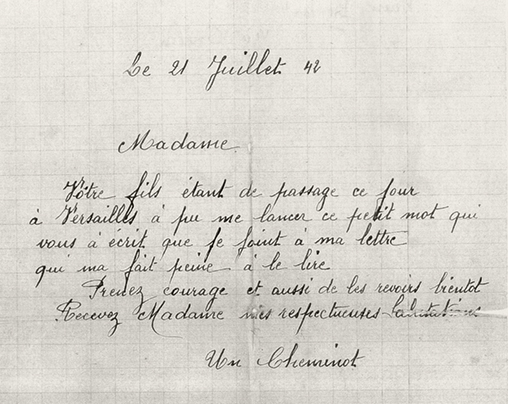
Letter written by a railway worker to accompany Henri Borlant’s note to his mother, which he had pushed through the opening in the roof of the train before departing for Auschwitz
© © Collection Henri Borlant
WAS IT POSSIBLE TO MAKE FRIENDS IN A CAMP?
Not only was it possible, it was essential for survival. No one survived without mutual help. There comes a time when you can’t go on alone. There comes a time - when you have a high fever and need supporting on either side to stop you from collapsing during roll call - when otherwise you just wouldn’t survive. There was moral support too: people talked to me, gave me courage and told me they were there for me. Another day, it was my turn to be there for them. We tried to group together with those who spoke the same language. And when you’re in a group, you see danger on all sides and can warn the others; that’s part of the survival code.
All those I met in the camp I saw regularly afterwards. They were the only people with whom I could discuss life in the camps. Dr Désiré Hafner I knew right up until his death; it was he who would later advise me to become a doctor myself. I had interviewed him for a DVD for the Deportation Remembrance Foundation. I asked 15 friends if I could interview them; wonderful people who had all been there. People who knew about it, because they had been through the same ordeal. No one can understand us better than those who have had the same experience.
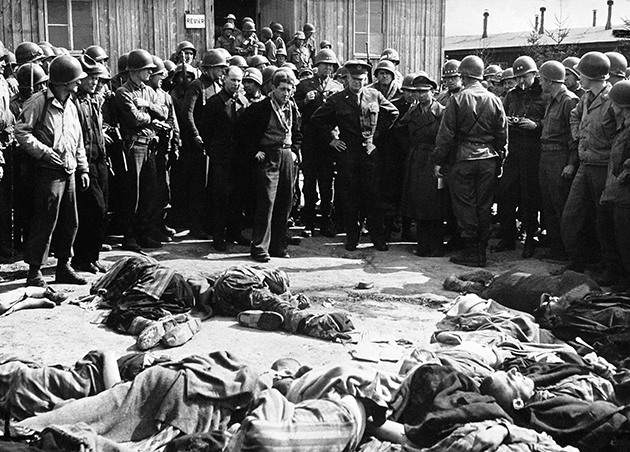
General Eisenhower and his men discover prisoners executed by the Nazis at the Ohrdruf camp, 5 April 1945
© © Keystone-France
HOW DO YOU THINK YOU MANAGED TO SURVIVE THREE YEARS OF DEPORTATION?
I can’t explain it. I was 15 and fragile. I would not have bet on myself coming through it. And yet I survived typhoid and tuberculosis. There really is such a thing as the will to live. Some would say, “There’s no point suffering just to die”, then they would clutch the electrified barbed wire. There were some suicides. But most of us said we had better try to survive, even in those conditions, one more day, then another, and another. When I tell you that, I am tempted to add a phrase which is not my own, but from La Fontaine’s fable Death and the Woodcutter: “Rather suffer than die Is the motto of mankind.” You suffer, you’re miserable, but you cling to life.
WHAT WERE THE CIRCUMSTANCES OF YOUR LIBERATION?
In October 1944, as the Russians approached, a number of us were evacuated to camps near Berlin. Every day, Allied planes flew overhead. I was finally sent to Ohrdruf, a small subcamp of Buchenwald. I became a newcomer, which means I was given the worst duties. One day, I was sent to the butcher’s in town to get food for the SS. While they were loading and unloading the lorry, a POW came up to me and said (he was French): “Stand firm, it won’t be long now. The Americans aren’t far away, and if you manage to escape, my fellow prisoners and I will hide you. The butcher is anti-Nazi. You can trust him.” On the night of 3 to 4 April 1945, knowing the Americans were on their way and wanting to avoid a forced evacuation, a death march, I escaped with a fellow prisoner. We went to see the butcher, who gave us prisoners’ clothes. The next day, the Americans arrived. I was free. In their jeep, we took them to the Ohrdruf camp. We had an urgent need to tell and show them what had been going on. By 13 April, I was at the repatriation centre. On the 16th, I arrived at Montigny-Lès-Metz. There, they carried out strict checks on your papers. I had none. And I didn’t fit into any category: prisoners, undesirables, workers. They didn’t know about deportees. One of my fellow prisoners, who was told that his wife was waiting for him at the Gare de l’Est station, took me with him. When we arrived in southern Paris, we had our first meal in France. The telephone rang and I was told, “We have found your mother. She is expecting you at her flat in Paris, with your brothers and sisters.” I didn’t think I would ever see her again. I had always thought she must have been on one of the many convoys that arrived in Auschwitz. I went to meet her. She never asked me a single question, and I never told her anything.
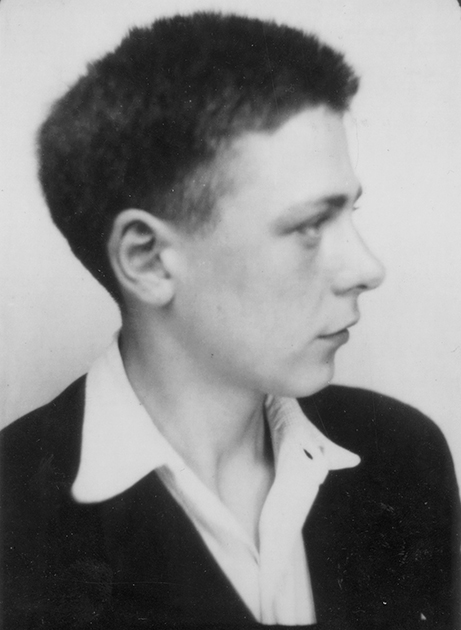
Henri Borlant on his return from the camps, 1945
© © Collection Henri Borlant
WHAT WAS THE HARDEST PART ABOUT RETURNING?
There was nothing hard about returning! I was in Paris, I was 17, my mind was set on the future. I thought nothing would be difficult after what I had been through. Above all, I was reunited with my mother. I could hug her and tell her how much I loved her. Not everyone was as lucky as me. Two years after returning, I enrolled at medical school, despite not having any qualifications before I was deported. In two years, I had passed my brevet and my baccalauréat. I didn’t give up, ever. I became a doctor, a profession I loved. My consultation room was on boulevard Richard Lenoir, in Paris. One day, I treated a German lady who was referred to me by a friend. She had left her parents after finding out about the Holocaust. She came back some time later and I hired her. We fell in love, got married and had three wonderful daughters. She is at home as we speak.
There have been other happy and gratifying moments too, such as the time at the Élysée Palace when the French president awarded me a decoration and made a small speech. There is also what I am doing with you now, which is to say, fighting Nazism, which is important. Above all, I was conscious that happiness is not something that should be taken for granted; not everyone is fortunate enough to have food to eat when they’re hungry or to be with the one they love. When you have lived through what I have, it would be silly to waste your life.
IN A WAY, TO TALK ABOUT THINGS IS TO RELIVE THEM. DO YOU FIND IT DIFFICULT TO TALK ABOUT WHAT HAPPENED AGAIN AND AGAIN?
No, no. I had decided never to return to Auschwitz. I was often asked to accompany school and university groups there. In 1995, I was contacted by a history teacher whose students were working on a project and exhibition on the theme “The liberation of the camps and the return of the deportees.” I provided them with some tape recordings of first-hand accounts to help with their research. They asked me to get in touch with Serge Klarsfeld to invite him to the opening of the exhibition. I didn’t know him personally. But I phoned him anyway and told him I had read the book he had written on the deportation of children and that in it I had seen a photo of my brother. He asked me what my name was and I told him. He consulted his lists and said, “I didn’t have you down as one of the survivors - were you not taken first to the Hotel Lutetia?” “No, I returned earlier.” He added me to the list of survivors, and agreed to come. It was then that he asked me to accompany him on a visit to Auschwitz with a group of 15-year-old students from the Rhône-Alpes region - the same age as I was when I was deported. I said yes because I didn’t dare say no, and when I put the phone down, my wife said: “Are you mad? You know you tremble with fear at the idea of going there!” When the young people arrived with their teacher at Lyon airport, he said to them: “This is Henri Borlant. He was your age, 15, when he was arrested in July 1942. Six thousand children under the age of 16 were arrested in 1942, and he is the only one who survived.” It hit me like an electric shock. From then on, I told myself I could not refuse to serve as a witness, knowing that I was the only survivor of all those children who were murdered.
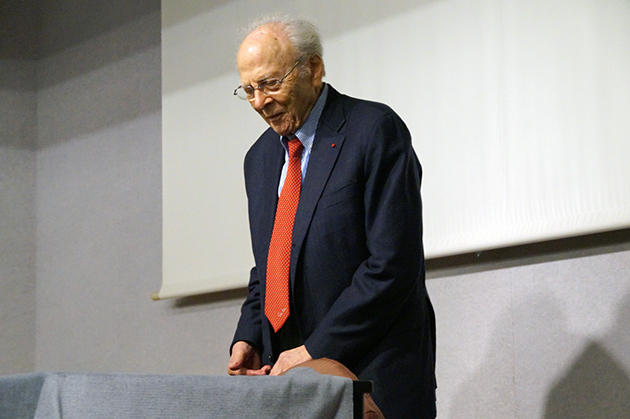
Henri Borlant speaks to high-school students from Metz, 29 March 2018
© © Vaea Héritier
YOU HAVE PUBLISHED MERCI D’AVOIR SURVÉCU (THANK YOU FOR SURVIVING). WHEN DID THE IDEA COME TO YOU TO PUT YOUR EXPERIENCE DOWN ON PAPER?
There came a time when I said to myself: “If you don’t do it now, you never will.” I didn’t have a written record. I’m no writer, so I told my story to people who agreed to listen and write it down. I made two attempts but was not happy with either. So I said to myself: “You’ll just have to do it yourself.” And I set about writing. When the book came out, it had a far greater impact than my filmed interviews had had. One journalist asked me, “Why didn’t you do it before?” and I replied, “Because I'm not a writer.” I would rather answer your questions, because I can see you and I can tell how interested you are; it’s quite different and I do it with pleasure. I remember one day, a long time ago, someone asked me: “Have you ever felt ashamed to be Jewish?” I answered: “Ashamed to be Jewish? No, I’ve never felt ashamed. At one time, I felt afraid.” It kept running through my head for several days. Then, some satisfactory answers came to me. I wasn’t ashamed to be Jewish; I was ashamed of feeling afraid, and I overcame that fear. Even so, I kept the fear for some time, then one day it disappeared.
DO YOU FEEL ANYTHING TODAY TO STILL SEE THE TATTOO ON YOUR ARM?
Yes, I do. It isn’t just a tattoo, a number. It is precisely the number 51 055. That number means it is 23 July 1942, when I was 15 years, one month and ten days old; it means that I was taken to the concentration camp, that I survived for nearly three years, and that I resisted the Nazis’ plan to turn us into smoke and ashes. So it is something I am proud of. The Nazis burnt us to make us disappear, so that no one would know, and I am here now, showing you this tattoo. Some compete in the Olympic Games and take home a gold medal. This tattoo is my gold medal. It means there are very few of us who made this journey, and that I survived it, diseases, beatings, hunger and all. I am here, alive and kicking, and I go on denouncing all those things today. I have never wanted to have this tattoo removed. To begin with, I hid it because I was afraid of being attacked by antisemites. But today I show it; I see no reason to hide it. With this tattoo, I fight racism and antisemitism, and I also defend democracy.
There is one thing it is my duty to insist upon. I am one of those who lived through that time, which lasted four long years, during which France was governed by Marshal Pétain, Pierre Laval, etc. They collaborated with the Nazis, they arrested innocent people. During those four years, they killed my father, my brother, my sister, my grandparents. They killed large numbers of children and babies. It went on for years, then the Nazis lost and I was able to return home, to find my country once again with a democratic government. There are many countries in the world, and many millions of people, who are deprived of democracy and envy us. Democracy was handed down to us, we inherited it. People shed their blood to rid us of absolute power. We are very fortunate to have the right to vote, to have freedom of movement, to be able to say what we think, be for or against. When, like me, you have lost that right and you regain it, you know its worth. Democracy can be lost if people aren’t interested, or don’t make the effort to find out. At election time, there is a large percentage of people who don’t go out and vote. You are young, well-educated people. You ought to do your research, think hard, make your choice, and learn to be responsible citizens.

Portraits of deportees in the building known as the “Sauna”, at Auschwitz-Birkenau
© © DR
AFTER THE WAR, HOW DO YOU FEEL ABOUT THE GERMANS?
Thank you for asking me that, because it’s an important question. It is not the Germans but the Nazis I hate, be they French or German. In the camp where I was, there were anti-Nazi Germans. I cannot forget how they risked their lives fighting the Nazis. If I told you the story of how I met a pretty young woman, it is because she was German, and I married her. Her father was a soldier during the war, and when her daughter asked him for explanations, he said: “It is the past and not to be spoken of.” That was when she decided to come to France. I am not against people who have done wrong being tried and convicted for their crimes. Societies need justice, not pardoning. Only the victims can pardon, no one else.
Author
Pierre-Mickaël Carniel, Jeanne Zeihen et Léa Caïd
Read more
Bibliography
Merci d’avoir survécu, Henri Borlant, Éditions du Seuil, 2011.
Online article
Articles of the review
-
The event
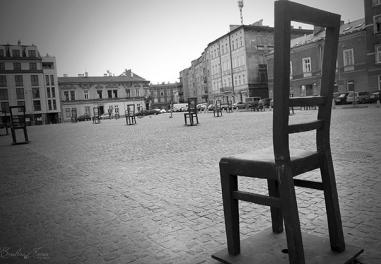
In the footsteps of la deportation
Read more -
The figure
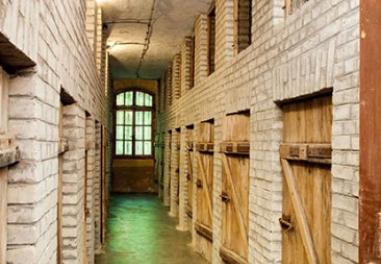
Le Fort de Queuleu
Following on from their Eastern European remembrance trip, the students from Metz visited the former internment and transit camp at Queuleu. It was an opportunity for them to see where European history meets the history of their region and of the Resistance fighters who were arrested there.
Read more -
The interview
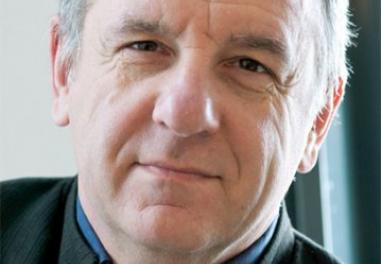
Denis Peschanski
Head of research at the CNRS and a specialist in Second World War history and remembrance, Denis Peschanski spoke at a conference at Metz high school on the mechanisms for the construction of collective memory.
Read more
Related articles
- The Wannsee Conference
- The Deportation
- Les grandes rafles de Juifs en France
- Les déportations de France
- Liberation of the camps
- National Deportation Day
- The National Day of Remembrance of the victims of racist and anti-Semitic persecutions by the French State and of tribute to the righteous of France


